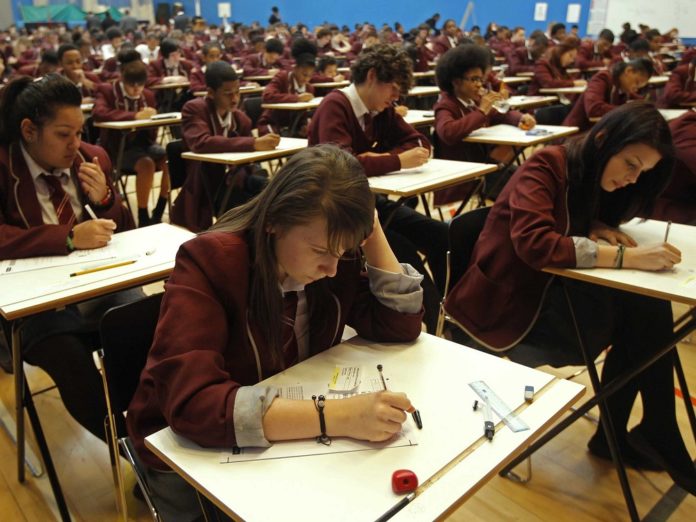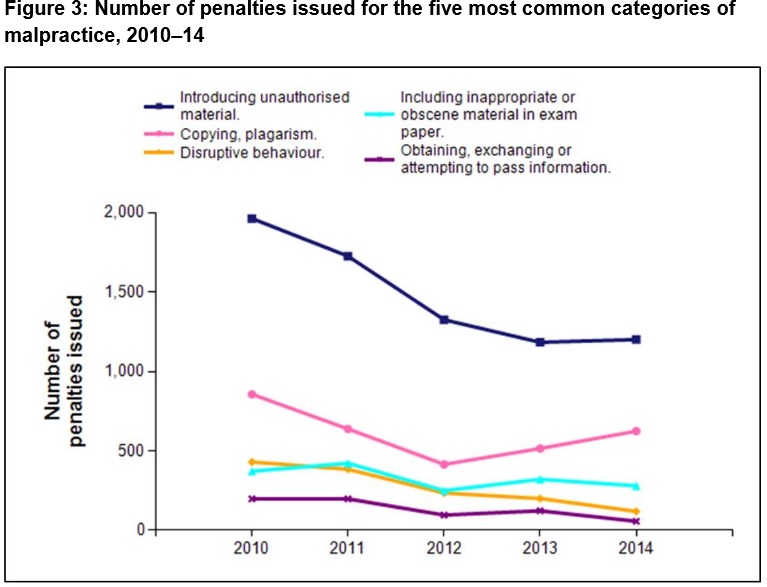
The Office of Qualifications and Examinations Regulation (Ofqual) has just released its annual report of UK students aged 16 to 18 who are cheating on their tests. The number of students caught in any given year is a small fraction of the total number of those taking exams. In 2014 only 0.012% of the 22 million students were found to have breached the rules. Either the kids are awesomely sincere, or too good at not getting caught!
These are the most common ways, according to Ofqual, that students opt to game the system:
- Bringing unauthorized material into the exam room: 1,200 penalties were issued, representing 47 per cent of all penalties. Bringing a mobile phone or other electronic communications device into the exam room accounted for 850 penalties, representing 71 per cent of 1,200 penalties.
- Plagiarism, copying from other candidates, or collusion: 620 penalties were issued, representing 25 per cent of all penalties.
- Including inappropriate, offensive, or obscene material in the exam paper or coursework: 280 penalties were issued, representing 11 per cent of all penalties.
- Disruptive behaviour in the exam room: 120 penalties were issued, representing 5 per cent of all penalties.
There has been a steady increase in the number of penalties issued to school or college staff, for giving inappropriate assistance to candidates (82 cases, representing 69 per cent of all penalties imposed on school or college staff). While numbers are still low, they are at the highest level seen over the last five years.
Exam boards also issued penalties to schools and colleges for the summer 2014 exam series. There were 217 penalties issued to schools and colleges for breach of security and giving assistance to candidates.
Source:






How is inappropriate or obscene cheating?
and those are only the ones who got caught.
Ehhh exams are not a an accurate way to measure intelligence. Many people are poor test takers, but do awesome on homework, projects, etc. Others are simply not book smart and have difficulties learning materials in a classroom setting and therefore won’t be able to apply anything on an exam later on. That being the case, it isn’t any wonder why so many people cheat on exams–they know it’s important to pass them in order to make the most out of their time, money, etc, and to gain a return on that investment later on in life once they’ve achieved their degree or diploma. Another issue with exams is that much of the materials covered in them an in the classroom for any particular class is not fully utilized in the future. I’ve had to take an insane amount of nonessential, yet required, courses in order to get my degree and I can tell you that little of what I had to learn was ever actually applied in my field. Same goes for high school as well.